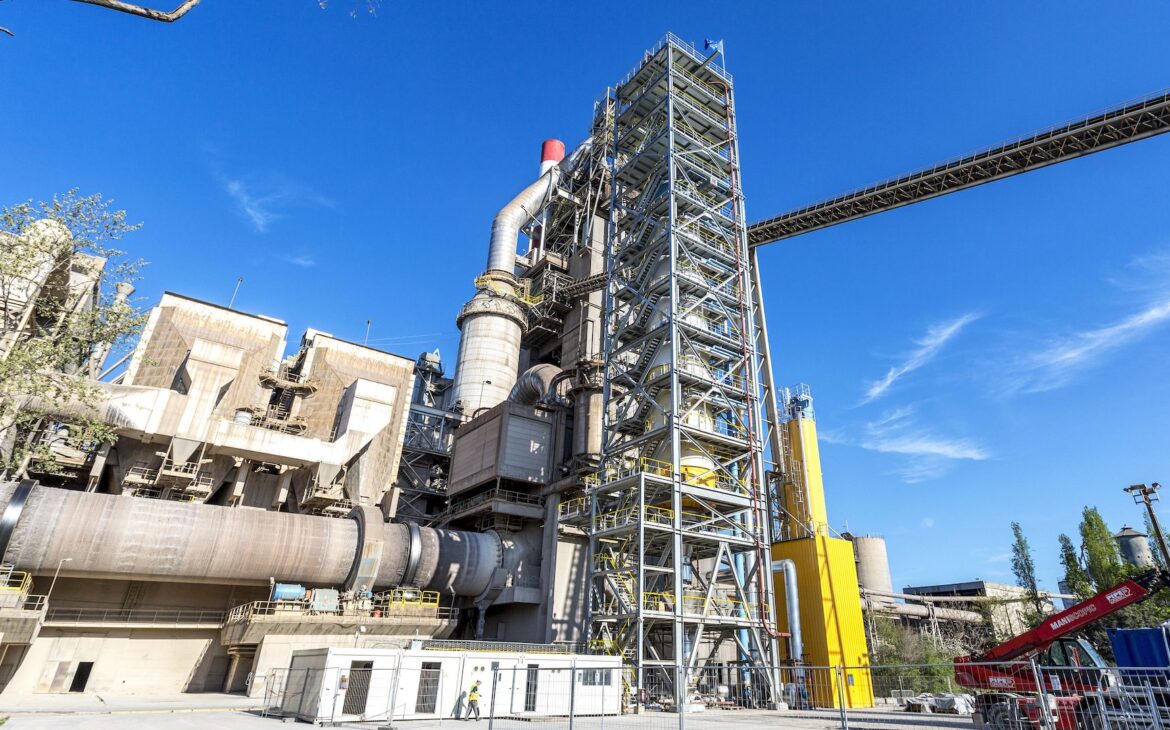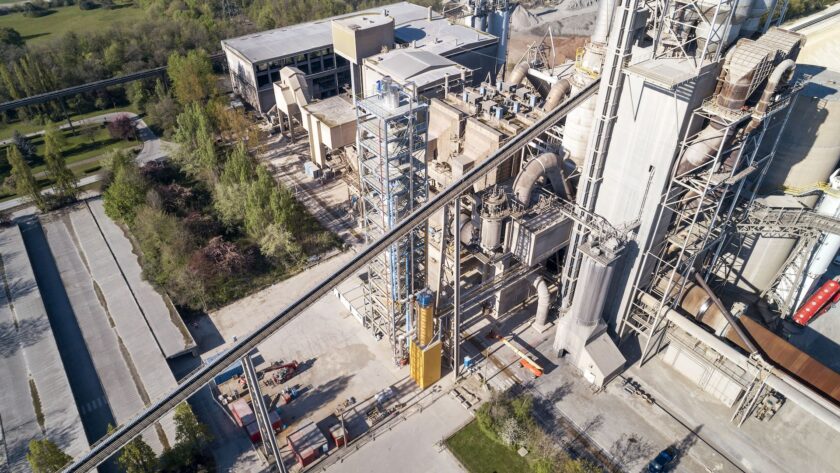A US-based company that invests in companies that remove or utilise carbon in industrial processes has taken a stake in a listed Australian technology business to help fund expansion.
Carbon Direct Capital Management has invested US$17.74 million (€15 million) for a 6.98-per-cent equity stake in Australian technology company Calix’s subsidiary Leilac Group, which is working to commercialise its Leilac CO2 capture technology. Calix will continue to own the remaining 93 per cent of the group.
In return for its investment, Carbon Direct will retain 30 per cent royalties from the deployment of technology that Leilac develops, regardless of its investment stake, and gains a seat on Leilac Group’s board that will operate autonomously from Calix.
Leilac is the exclusive licensee of Calix’s low emissions intensity lime and cement CO2 capture technology, which has been successfully piloted in HeidelbergCement’s plant in Lixhe, Belgium where it is producing 25,000 tonnes of lime per annum, and is aiming at 100,000 tonnes at a second HeidelbergCement plant in Hannover, Germany.
Further commercial pilot plants for lime production are under development with Tarmac, the UK division of CRH, and with AdBri in Australia, among others.
Calix Limited CEO Phil Hodgson said the deal represented a critical milestone in Calix’s stated strategy of seeking equity “farm-ins”, after initial development was undertaken by Calix, to accelerate and deploy its underlying platform technology into each line of business.
“As each of these businesses become independent commercial entities, they will remain joined at the hip” technically with Calix, which will continue to support the development of the core intellectual property,” he said.
“Over time, growing royalty income from these companies will also support the development of new applications of the IP and associated technologies.”
Besides its investment in carbon removal and utilisation companies, Carbon Direct Capital Management operates a scientific advisory business, working with leading corporations in 28 countries, fulfiling their carbon commitments. Clients Microsoft and Shopify.
Hodgson said the recent Intergovernmental Panel on Climate Change (IPCC) report was unequivocal in saying that to reach the stated 2030 goals on climate change, CO2 emissions have to be reduced.
“Leilac Technology is an option that is being deployed now to meet this urgent need. Carbon Direct coming on board is a strong vote of confidence in Calix’s Leilac decarbonising technology, following on from endorsements and partnerships with industry leaders such as HeidelbergCement, Cemex, Lhoist and Solvay.
“The investment will assist us in accelerating the deployment of the technology into the carbon capture and storage landscape, with additional resources covering technology research and development, CO2 logistics, use and storage, and whole-of-project expertise, while our technology gains more exposure in global markets outside of Europe.”
He said the deal marked the company’s first material portfolio transaction in its stated strategy to farm-in equity to deploy our technology commercially.
“We believe this strategy adds speed and focus at a critical time in the technology commercialisation journey, and leaves the head company to focus on what it does best – supporting our technology and developing the next global, disruptive applications.”
Carbon Direct founder and CEO Jonathan Goldberg said the company was impressed by the technical and commercial rigour of the Leilac team. “Plant partners are outspoken in their excitement about Leilac. We are delighted to support Phil, Calix, and the Leilac Group as they seek to scale Leilac into cement and lime plants around the world.”
Addressing decarbonisation goals
Global decarbonisation efforts are accelerating with the UK government in 2019, for example, becoming the first major economy to commit to net-zero CO2 by 2050 and heavily supporting decarbonisation efforts through funding under the UK Department of Business, Energy and Industrial Strategy £1 billion Net Zero Innovation Portfolio.
This year, the EU unveiled a plan to slash its carbon emissions by 55 per cent before 2030 and impose border tariffs on countries, including Australia, that do not have some form of carbon price.
Cement production is the world’s single biggest industrial cause of carbon pollution, responsible for up to 8 per cent of global emissions, producing more than 4 billion tonnes of CO2 per year. Cement is the primary ingredient in concrete, the second most used material in the world after water.
Meanwhile, the global production volume of lime was approximately 330 million tonnes in 2020, with myriad applications beyond cement including the manufacture of aluminium, asphalt, copper, glass, gold, lithium, plasterboard, silver, solar-grade silica, steel, table salt and toothpaste. Lime is also used in agriculture and for water and sewage treatment.
Making 1 tonne of lime or cement clinker produces approximately 1 tonne of CO2.
Leilac’s carbon capture technology solution
According to Leilac, between 50 and 60 per cent of cement CO2 emissions are derived from the process of heating or “calcination” of limestone, the chemical reaction that converts limestone (CaCO3) into lime (CaO) and CO2. These emissions are therefore unavoidable and a low-cost capture solution is essential.

The patented Leilac kiln design separates CO2 emissions arising during lime and cement production without significant energy penalty. The Leilac kiln is being developed to use a variety of input fuels and is also easily electrified, enabling complete decarbonisation of production by switching to renewable energy.
Six commercial-scale cement and four commercial-scale lime projects are now under development with several interested parties, and two projects are now moving into more detailed planning under previously announced heads of agreement with CRH’s UK subsidiary Tarmac and Adbri in Australia.
Main image: Calix Leilac-1 pilot plant in Lixhe, Belgium. Image supplied.



